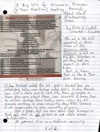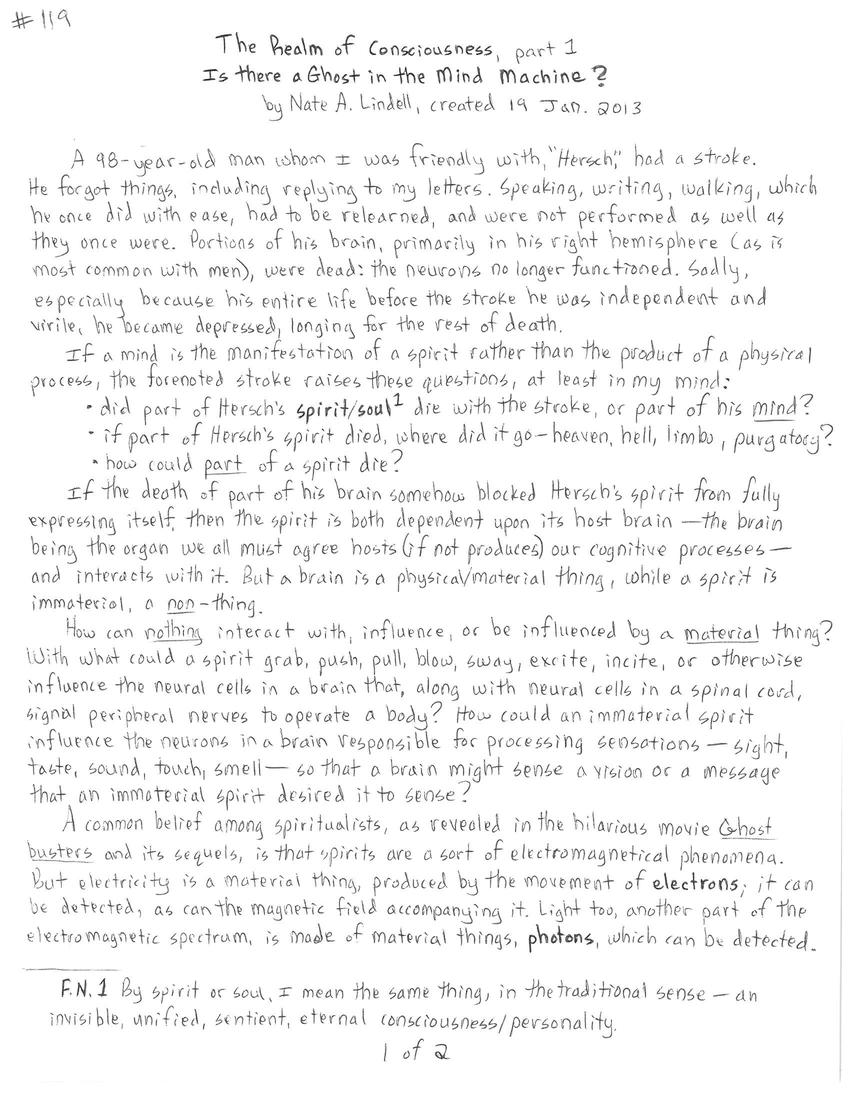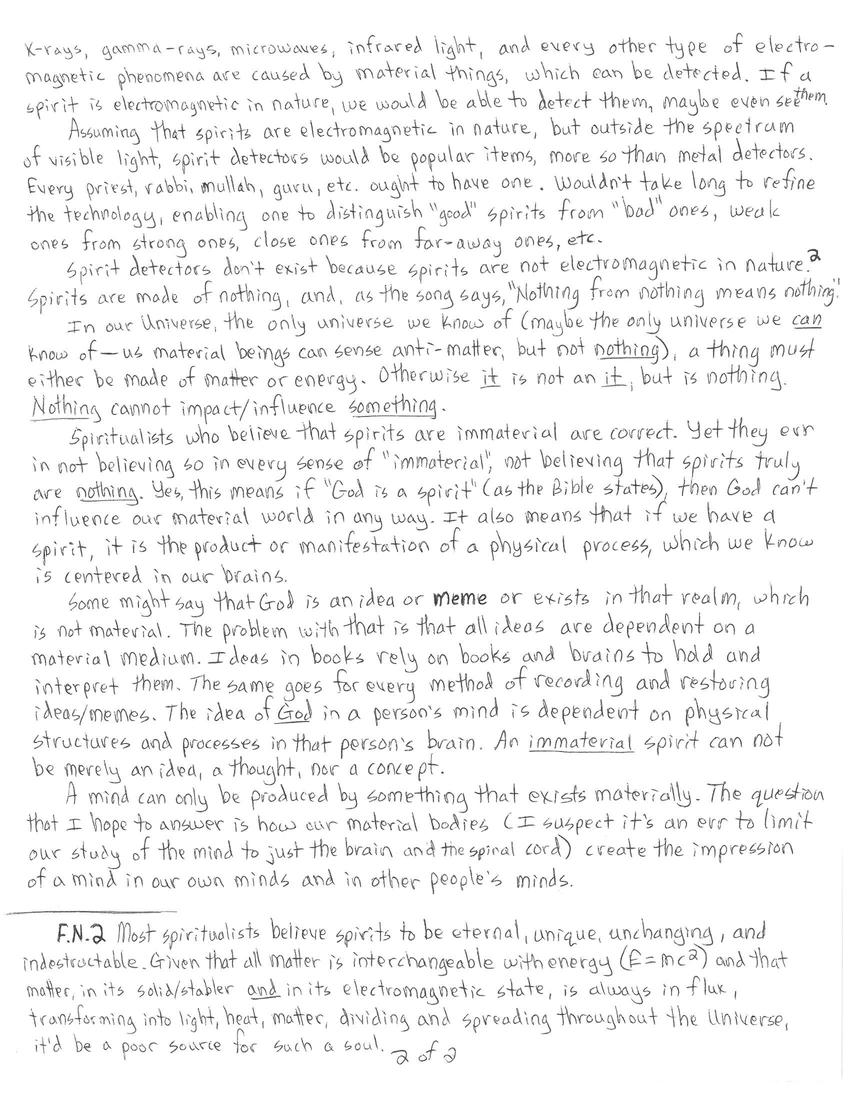
Transcription
#119
The Realm of Conciousness, Part 1
Is there a Ghost in the Mind Machine?
By Nate A. Lindell, created 19 Jan, 2013
A 98-year-old man whom I was friendly with, "Hersch", had a stroke. He forgot things, including replying to my letters. Speaking, writing, walking, which he once did with ease, had to be relearned, and were not performed as well as they once were. Portions of his brain, primarily in his right hemisphere (as is most common with men), were dead: the neurons no longer functioned. Sadly, especially because his entire life before the stroke he was independent and virile, he became depressed, longing for the rest of death.
If a mind is the manifestation of a spirit rather than the product of a physical process, the fore-noted stroke raises these questions, at least in my mind:
•did part of Hersch's spirit/soul* die with the stroke, or part of his mind?
•if part of Hersch's spirit died, where did it go- heaven, hell, limbo, purgatory?
•how could part of a spirit die?
If the death of a part of his brain somehow blocked Hersch's spirit from fully expressing itself, then the spirit is both dependent upon its host brain -the brain being the organ we all must agree hosts (if not produces) our cognitive processes- and interacts with it. But a brain is a physical/material thing, while a spirit is immaterial, a non-thing.
How can nothing interact with, influence, or be influenced by a material thing? With what could a spirit grab, push, pull, blow, sway, excite, incite, or otherwise influence the neural cells in a brain that, along with the neural cells in a spinal cord, signal peripheral nerves to operate a body? How could an immaterial spirit influence the neurons in a brain responsible for processing sensations -sight, taste, sound, tough, smell- so that a brain might sense a vision of a message that an immaterial spirit desired it to sense?
A common belief among spiritualists, as revealed in the hilarious movie Ghostbusters and its sequels, is that spirits are a sort of electromagnetic phenomena. But electricity is a material thing, produced by the movement of electrons; it can be detected, as can the magnetic field accompanying it. Light too, another part of the electromagnetic spectrum, is made of material things, photons, which can be detected. X-rays, gamma-rays, microwaves, infra-red light, and every other type of electromagnetic phenomena are caused by material things, which can be detected. If a spirit is electromagnetic in nature, we would be able to detect them, maybe even see them.
Assuming that spirits are electromagnetic in nature, but outside the spectrum of visible light, spirit detectors would be popular items, more so than metal detectors. Every priest, rabbi, mullah, guru, etc. ought to have one. Wouldn't take long to refine the technology, enabling one to distinguish "good" spirits from "bad" ones, weak ones from strong ones, close ones from far-away ones, etc.
Spirit detectors don't exist because spirits are not electromagnetic in nature.** Spirits are made of nothing, and, as the song says, "Nothing from nothing means nothing."
In our universe, the only universe we know of (maybe the only universe we can know of -us material beings can sense anti-matter, but not nothing), a thing must either be made of matter or energy. Otherwise, it is not an it, but is nothing. Nothing cannot impact/influence something.
Spiritualists who believe that spirits are immaterial are correct. Yet they err in not believing so in every sense of "immaterial", not believing that spirits truly are nothing. Yes, this means in "God is a spirit" (as the Bible states, then God an't influence out material world in any way. It also means that if we have a spirit, it is the product or manifestation of a physical process, which we know is centered in out brains.
Some might say that God is an idea or meme or exists in that realm, which is not material. The problem with that is that all ideas are dependent on a material medium. Ideas in books rely on books and brains to hold and interpret them. The same goes for every method of recording and restoring ideas/memes. The idea of God in a person's mind is dependent on physical structures and processes in that person's brain. An immaterial spirit an not be merely an idea, a thought, nor a concept.
A mind can only be produced by something that exists materially. The question that I hope to answer is how our material bodies (I suspect it's an err to limit our study of the mind to just the brain and the spinal cord) create the impression of a mind in our own minds and in other people's minds.
*By spirit or soul, I mean the same thin, in the traditional sense -an invisible, unified, sentient, eternal conciousness/personality.
** Most spiritualists believe spirits to be eternal, unique, unchanging, and indestructible. Given that all matter is interchangeable with energy (E=mc^2) and that matter, in its solid/stabler and in its electromagnetic state, is always in flux, transforming into light, heat, matter, dividing and spreading throughout the universe, it'd be a poor source for such a soul.
Other posts by this author
|
2025 jul 19

|
2025 apr 16

|
2025 mar 3

|
2024 sep 11

|
2024 aug 24

|
2024 aug 20

|
More... |



Replies (2)
I finished the transcription for your post "The Realm of Conciousness: Part 1". My condolences about Hersch, I know from first-hand experience the destructions strokes can cause. However, having said that, your response to the occurrence was insightful. As of yet, we can't see or detect spirits. But then again, we don't really know what we're looking for. The human body shares a unique connection with the human mind, and although the majority of the population experiences their bodies react to their thoughts every day, we still have very little knowledge about how the brain actually works. Recently there have been many studies about microbes living in the human gut and how they may affect mental processes. I completely agree that we spend too much time an just the brain and the spinal cord. Wherever our "cognitive processes" come from, they affect the whole body. It's complicated, but the idea of a spirit exists within the mind which stems from something or someone somewhere and which takes its material form in flesh. We think, so we presume that we must exist, and the real challenge in life is sharing what we see and how we see it with others.
keep writing! (I presume there will be a part 2)...
---C.B.B. (candleships)